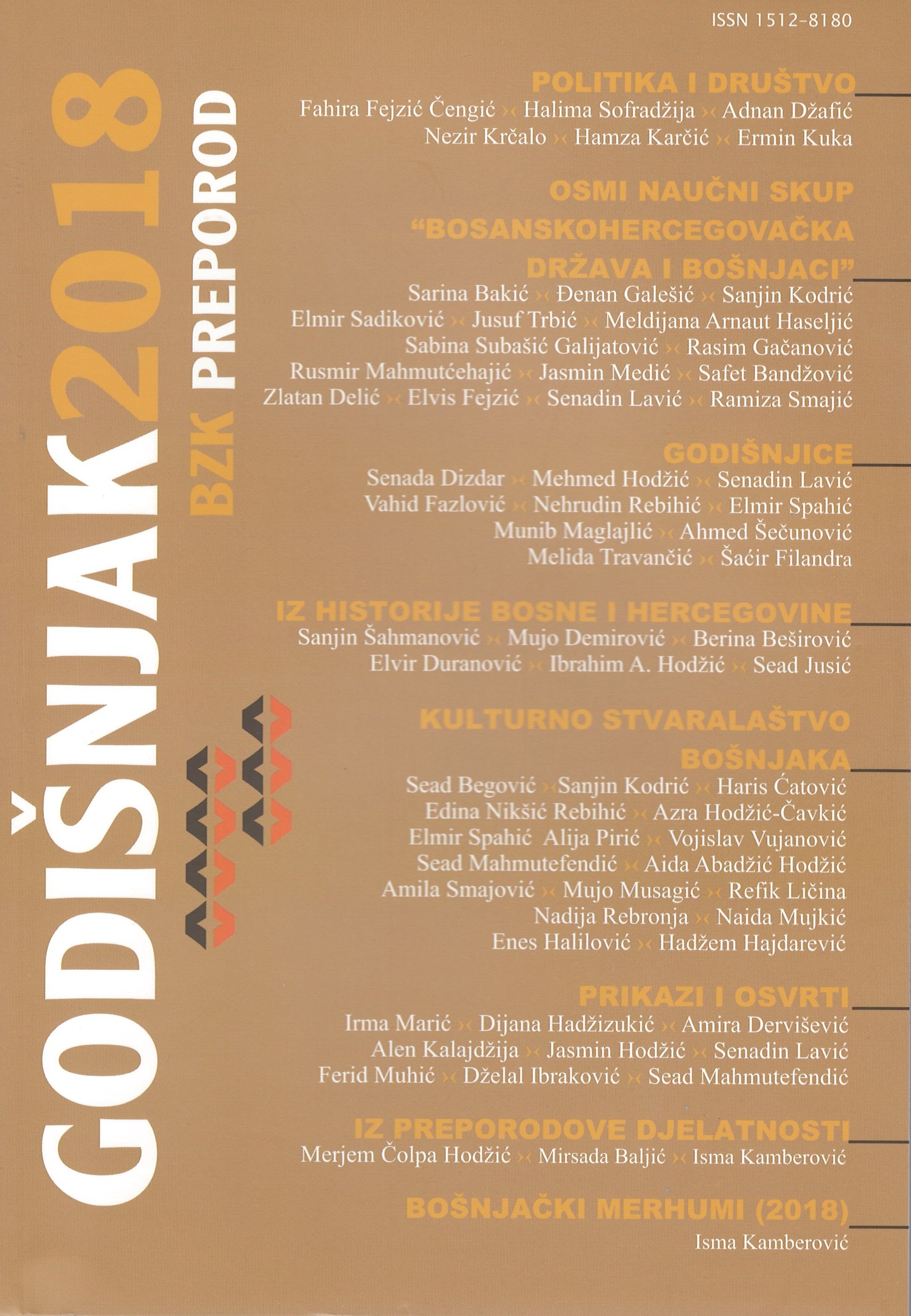Savremeno bosanskohercegovačko iskustvo politike: neokolonijalizam i fundamentalizam u politici
CONTEMPORARY BOSNIAN AND HERZEGOVINIAN EXPERIENCE OF POLITICS: NEO-COLONIALISM AND FUNDAMENTALISM IN POLITICS
Author(s): Elvis FejzićSubject(s): Politics / Political Sciences, Politics, Political Theory
Published by: Bošnjačka zajednica kulture "Preporod"
Keywords: state; globalization; power; democracy; neo-colonialism; fundamentalism; international community; political parties; ideology, economy;
Summary/Abstract: Modern political existence of the state of Bosnia and Herzegovina is conditioned by various political threats and challenges that limit its possibilities and intentions in the field of practical politics. These limiting political processes and finalized solutions are often imposed on political distance, although, let's say, their effects can be found exclusively in the sphere of internal politics, and that creates the impression that they have an intra-Bosnian character.The apostrophized consequences are, as a rule, the result of global interdependence and transnational polycentrism in the sphere of political decision-making that, for example, has permanently changed and transformed the political process in democratic countries. However, this trend does not have the same intensity in all countries − it is usually conditioned by the possession of different forms of power - and is particularly expressed in political communities that have limited institutional capacity and transitional state creations.In this regard, it is possible to assume that globalization policy largely makes model, defines and directs Bosnia and Herzegovina's development and political capabilities − as new, post-socialist and transitional democracies - while minimizing the democratic capacity of its political institutions. In other words, the effects of globalization that can be found in the political milieu and social sphere of the Bosnian-Herzegovinian state give to its political person completely different form, role and meaning. Moreover, there are several indicators that unambiguously indicate that is endangered the political stability and economic sustainability in post-Dayton Bosnia and Herzegovina and they concentrate on the different practical expressions of policies of neo-colonialism and fundamentalism in Bosnian-Herzegovinian political practice.
Journal: Godišnjak Bošnjačke zajednice kulture »Preporod«
- Issue Year: 2018
- Issue No: 1
- Page Range: 331-347
- Page Count: 17
- Language: Bosnian

